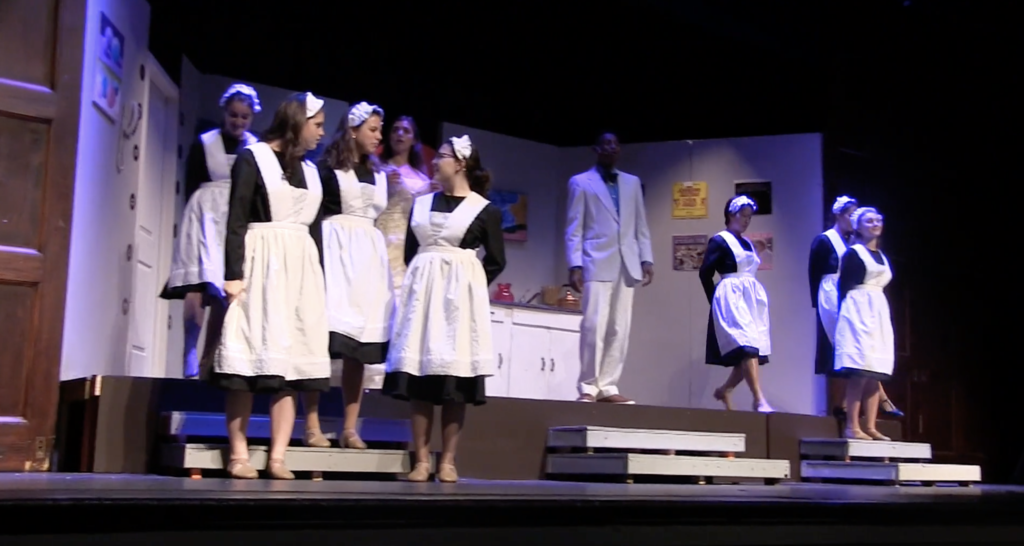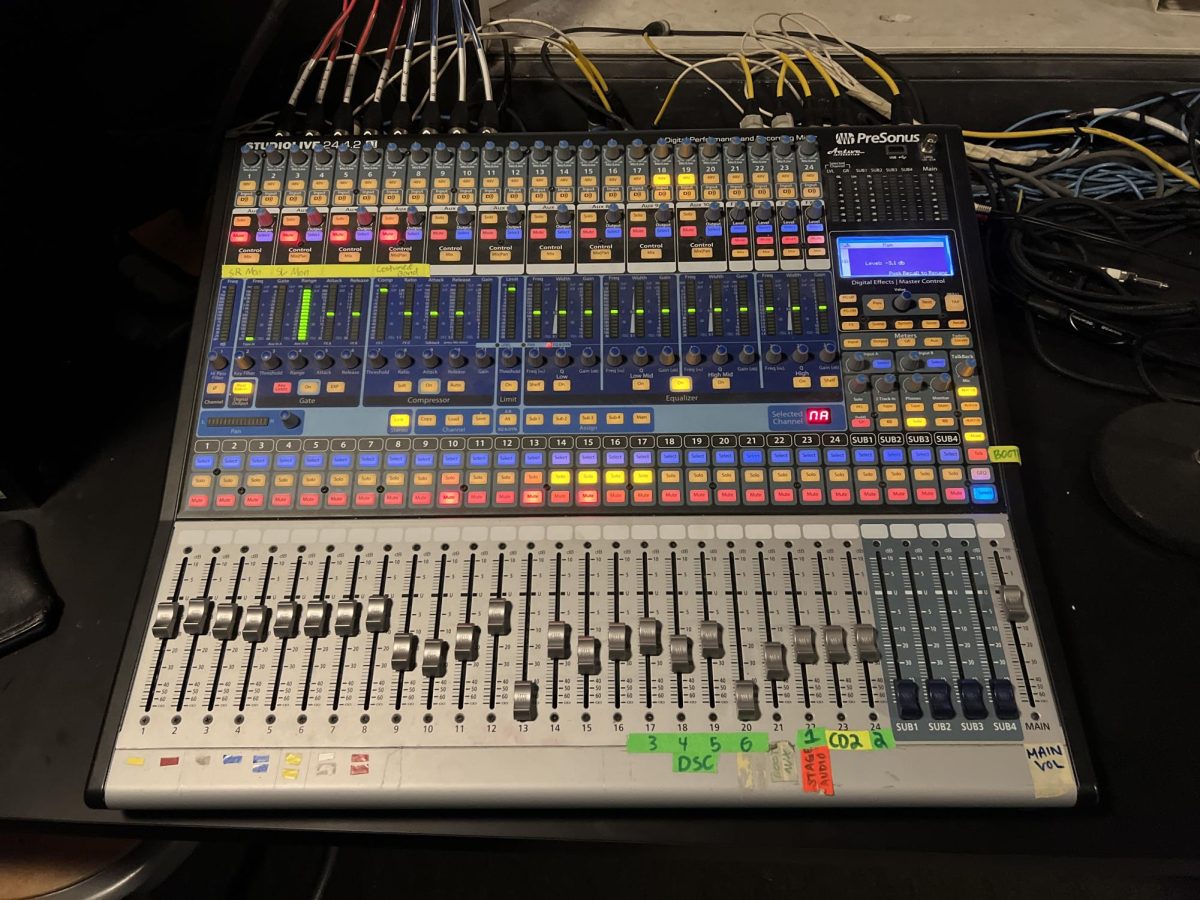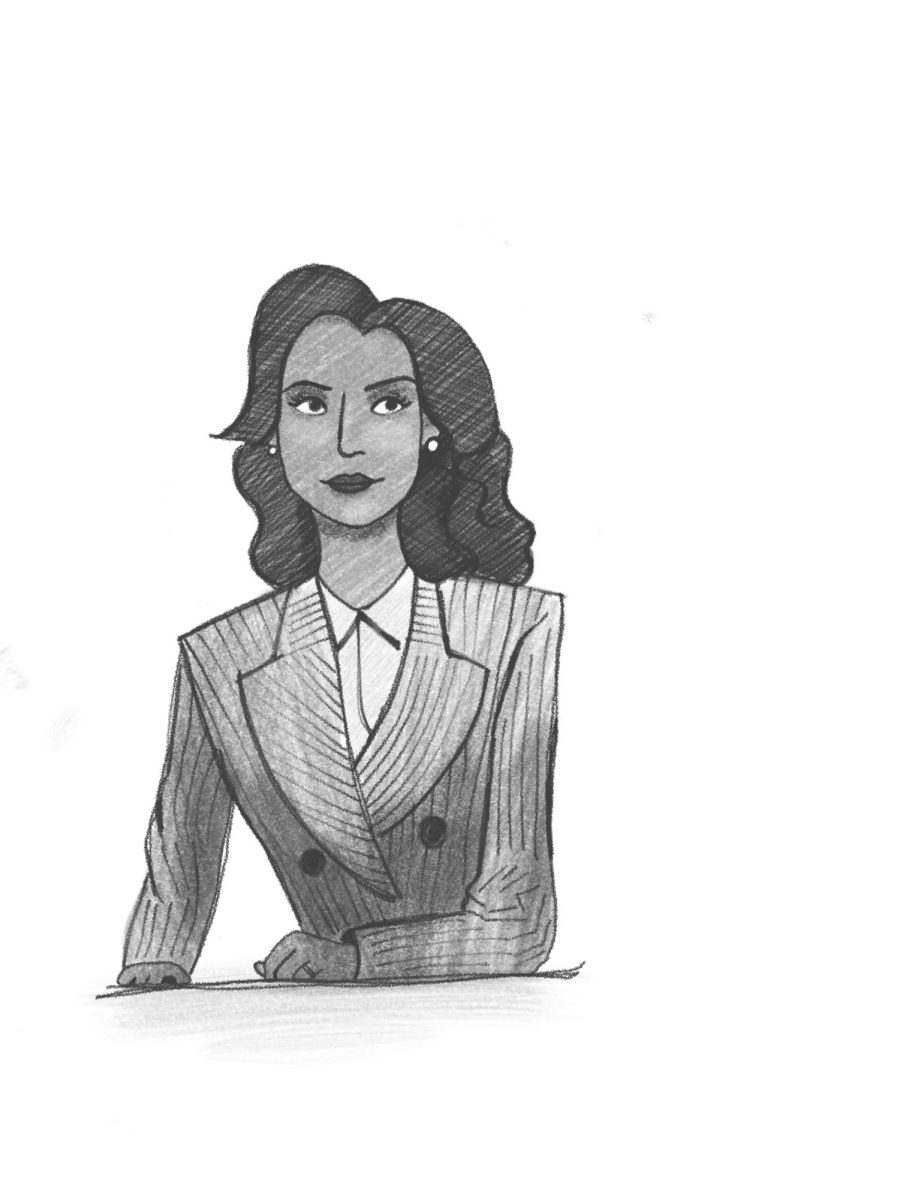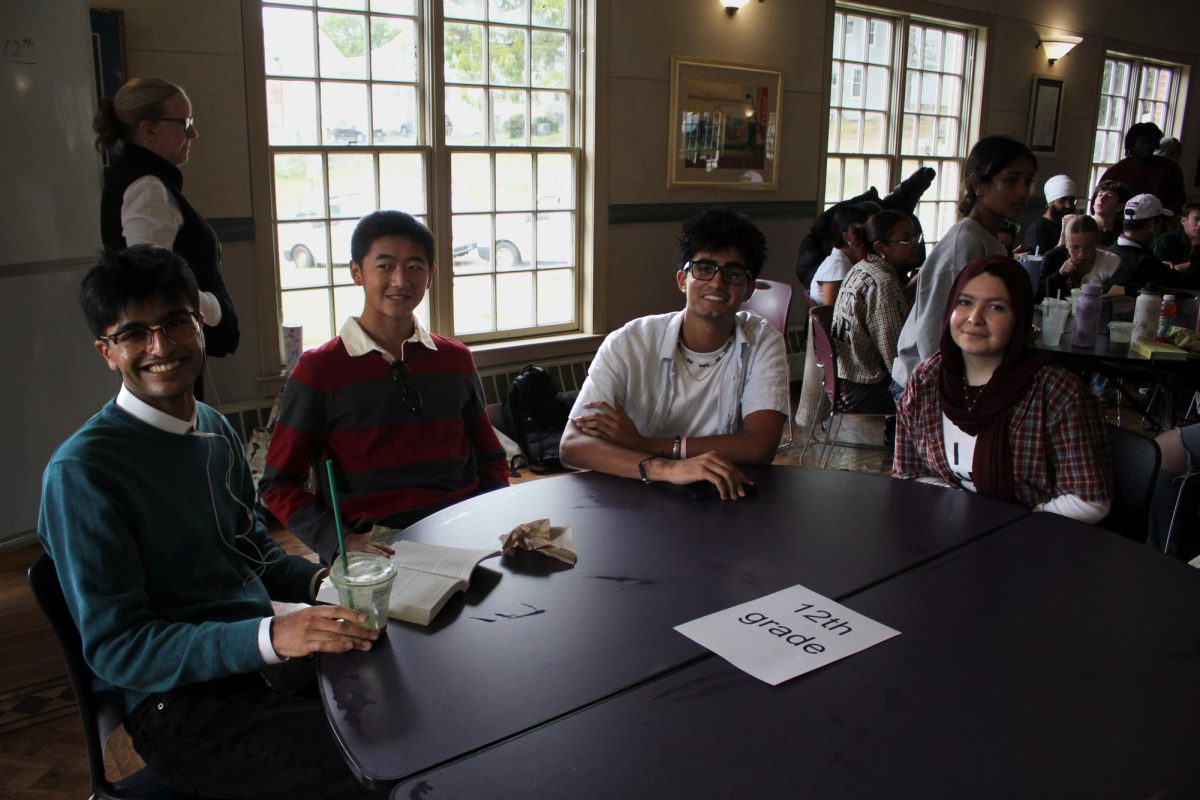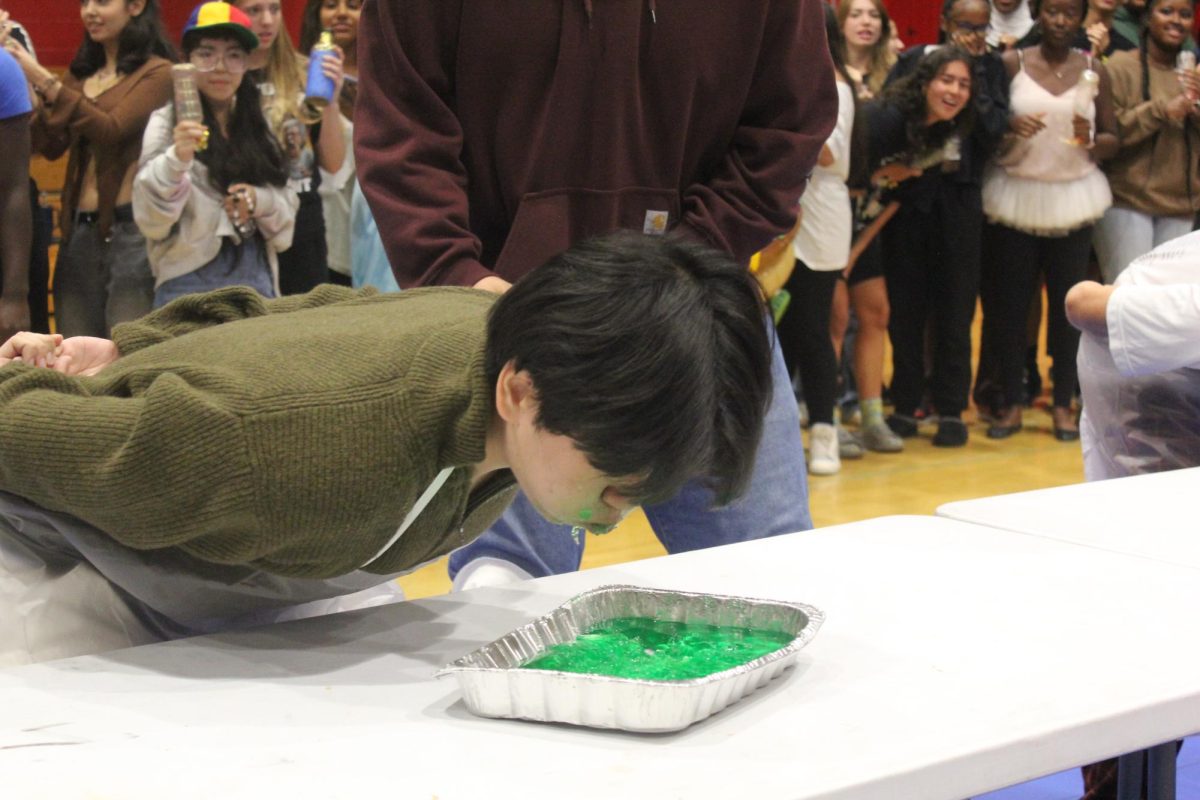By Ali Chesnick ’19, Lizzie Carter ’20, Liah Morban ’21, and Jordan Grabelle ’22
The 2018 Moorestown Friends School Musical is “The Drowsy Chaperone.” WordsWorth took an in-depth look to see what it takes to put on the musical.
MEET THE CAST
INTERVIEW WITH DRAMA DIRECTOR ANGELA WERTNER
“Comedy, comedy, comedy,” said Angela Wertner, the play’s director, when questioned about what the audience will enjoy while watching The Drowsy Chaperone.
There are a lot of parameters around picking a show for a high school, but a considerable fact is the talent that we have and the amount of students we have that I know are going to come out for the show.
– Angela Wertner
According to her, picking this musical was an easy decision. Wertner explained, “I chose this show because it has a lot of quirky and fun characters and the music is great. I saw it… and I was like ‘This is a great show.’” In addition to choosing the musical after seeing it performed, Wertner said that “there are a lot of parameters around picking a show for a high school, but a considerable fact is the talent that we have and the amount of students we have that I know are going to come out for the show.”
Besides the “gangsters [that] have a lot of fun pastry puns,” and the hilarious lines said by the character Aldolpho, Wertner is expecting to wow the audiences with amazing musical and dance numbers. Watchers should expect “lots of high energy, big dance numbers” as well as “fun, great music.”
Similar to the festive atmosphere of the show, the actors and crew had a great time assembling the musical. Mrs. Wertner said that her favorite rehearsal moment was when, “[they] were rehearsing for the dance numbers and they were finally coming together. They were polished, and that was a really cool thing.” The result of the hard work of the cast and crew is “a really good plot and really talented actors” with “great tech.”
INTERVIEW WITH MFS ARTS DEPARTMENT CHAIR BRIAN HOWARD
WW: What is unique about The Drowsy Chaperone?
Howard: Coming from my perspective, which is overseeing the music and conducting it, there is something very strange about the score for me. I’ve never had a score that has had so many strange tempo changes. That’s hard for the cast, and it’s hard for us… it makes it just very interesting. It’s very subtle kind of emotional things are happening when those shifts happen.
WW: How has your experience been with the play so far?
Howard: Oh it’s great. But I come in really really late. I come in just before tech week and I rehearse the band and just two rehearsals, two run throughs. Then I’m in what’s called a sitzprobe, which is a song run through without out blocking with the whole cast. Then [I’m] in for the tech rehearsals and the performances. It’s been great and fun.
WW: What’s your favorite musical number so far?
Howard: Good question. Probably “Toledo Surprise” because it has some really really weird time signature things, which are fun to conduct.
WW: What do you think is the most challenging to learn (to conduct)?
Howard: Probably the whole opening sequence that goes on for, I don’t know, 25 pages because there is nowhere to stop. It’s not very forgiving, let’s put it that way. It’s very, very, very fast.
INTERVIEW WITH CHORAL DIRECTOR STEVE WEBER
WW: What is unique about The Drowsy Chaperone?
Weber: What’s unique about The Drowsy Chaperone is that the music is written in 20s or 30s style musical, but the script is contemporary, so it combines a little bit of both which I haven’t seen in musicals.
WW: How has your experience been with this play so far?
Weber: I have enjoyed it very much so far. Everyone has been well prepared, and everyone sounds great on the music. They have been doing a great job with Mrs. Wertner preparing all their lines and choreography, so I think it’s going to be a great show.
WW: What’s your favorite musical number so far?
Weber: My favorite musical number is probably ‘Show Off’ just because . . . it’s a fun one to play on the piano. But they are all great numbers.
WW: Which do you think was the most challenging to teach?
Weber: Probably some of the humor. Even within the songs, not just the lines. Some of the jokes are references to old musicals, some follow humor that may be a little bit older, and there is some newer humor. The students didn’t get some of the humor right away, so we had to show them what it meant in context of the show. Once they got it then it came along very well.
WW: How have you enjoyed working on a musical at a new school?
Weber: I have enjoyed it very much. I worked on seven musicals at my previous school, so I had a lot of experience with doing different musicals, but never The Drowsy Chaperone. I’ve never even seen it before we started working on it here, I have enjoyed it a lot! It’s great to see how the students get involved and work hard for the final product, so I’m very happy and excited.
BEHIND-THE-SCENES
A LOOK AT COSTUMES AND CHOREOGRAPHY:
FROM AUDITORIUM STAGE TO COMPLETE SET: A LOOK AT THE STAGE CREW WHO MAKE IT ALL HAPPEN
Lights, music, costumes, and dancing! These are all words you think of when you hear “musical”. However, behind all the glitz and glamour are the sounds of saws, staple guns, screwdrivers, cues and more. Stage crew is a substantial part of the musical and is in charge of all the technical aspects of the show. There are many different positions in stage crew including lighting, mics, prop building and stage managing. WordsWorth got the opportunity to interview the people behind the musical’s success.
The first person to be interviewed was Aidan Dennis, a senior in charge of the sound booth.
WordsWorth: What is the hardest thing about stage crew?
Aidan Dennis: I get here at 3:30 and don’t leave until 9:30. Teachers still expect me to do homework which is kind of rough since I’ll usually be tired afterwards.
WW: What are some of the challenges about sound?
Dennis: Pre-performance mic checks are a hassle since everyone is everywhere, and their mics must be on at all times.
WW: Why do you enjoy stage crew?
Dennis: Stage crew is a cool time to be with friends and just hang out without all the stress.
After interviewing Aidan, WordsWorth caught up with Alec Ryden, another senior who is one of the stage managers.
WordsWorth: What is the hardest thing about being stage manager?
Alec Ryden: Keeping everyone in the right place at the right time.
WW: What is one of your favorite things about stage crew?
Ryden: I love seeing everything come together. Everyone puts in so much work to make the performances epic, and I like seeing the set, show numbers, and costumes all come together. Whether it’s last minute or tech week, watching the show come together is something really cool to watch.
WW: Why did you become stage manager?
Ryden: I love being
From there,
WordsWorth: What are some of the props you’ve built/helped build?
Alaisha Blue: I helped from minor things like the pastry platter to larger props like the airplane that comes out towards the end of the show. I also helped Mr. W cut different pieces of wood and paint the set along with the rest of stage crew.
WW: What is it like building props?
Blue: It’s fun and stressful all at the same time. You get the chance to be creative and build things, but at the same time, you’re using power tools which can be dangerous. When building props there’s always the fear of getting hurt on the job. Being able to build props is one of my favorite things about stage crew itself.
WW: What other stress is there with props?
Blue: Usually the biggest stress moments is making sure that everything is finished on time since the cast relies on all these things. There have been nights where Mr. W has stayed up until early morning to make sure that these props are ready. To make sure that all of the props are done on time I’m always backstage helping Mr. W with anything else he needs.
Finally,
WordsWorth: What is the hardest thing about lighting?
Julia Kropiewnicki: The most challenging thing is making sure that all of the lighting cues are on time. Most times these cues tell the actor when to come on stage or means a change in scene. If the cue is put up on the wrong time, then the actor comes in late which throws everyone else off.
WW: What is something you learned after doing stage crew?
Kropiewnicki: Actors really depend on stage crew for the show to be the show. Without stage crew, you don’t get any of the cues or music or even props. It makes you realize how big and important our job is.
WW: What is your favorite thing about stage crew?
Kropiewnicki: I love the little booth squad. It’s like a giant family up there. I also love being a part of something this big.
CURTAIN CALL
There are many pieces that play instrumental roles in the production of this play. Each part has been working tirelessly to bring a unique take of this twenties-inspired play to the MFS stage.
The cast and crew

